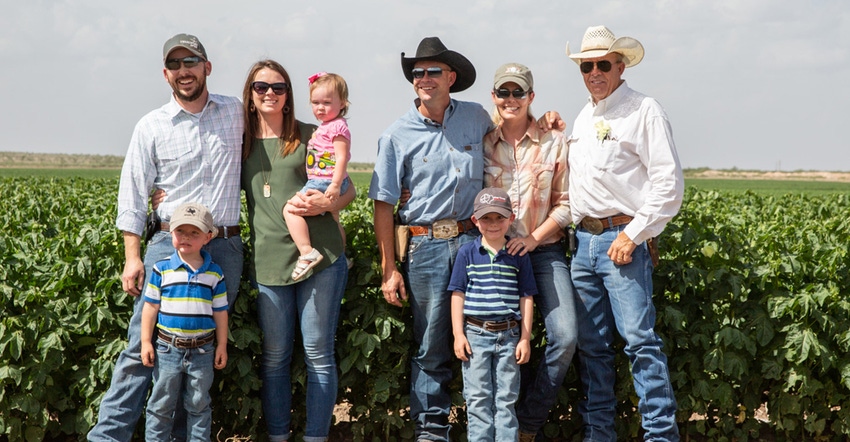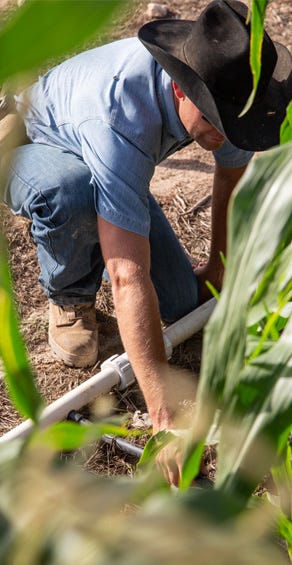October 13, 2018

To celebrate National Farmer's Day, Wrangler has released a video featuring fifth-generation farmers Vance and Mandie Smith of Big Spring, Texas. The Smiths are one of five cotton-producing families participating in Wrangler's soil-health pilot program aimed at bolstering the supply of sustainable cotton while highlighting farmers who utilize and encourage soil-health practices.
Vance, who is farming land that his great, great grandfather broke out in the 1880s, also grows corn and raises cattle. 'We’re constantly innovating. We’re constantly changing, upgrading," says Vance on the Wrangler video. "We’re being more environmentally friendly every day."

Vance Smith, Big Spring, Texas, farmer.
The soil-health practices he utilizes on his farm are sub-surface drip irrigation, reduced tillage, cover crops and crop rotation. "We’re trying to grow the best fiber we possibly can. I hope that’s passed down the line and we know that Wrangler will have a good product," adds Vance in the video.
After evaluating 45 scientific reports, Wrangler definitively concluded the practices of conservation tillage, cover crops and crop rotation result in greater crop resiliency and productivity, among a host of other benefits to the grower and the land, reports Wrangler in its April 18, 2018, press release.
“Wrangler believes that our supply chain does not begin with fabric or cotton. It begins with soil and the land itself,” said Roian Atwood, director of sustainability for Wrangler, in the news release. “Preserving and enhancing the health of soil is critical and necessary to the preservation of America’s denim heritage and future generations of people who work the land. That’s why we’re committed to doubling our use of sustainably-farmed cotton over the next year.”
The report, “Seeding Soil’s Potential,” summarizes the findings of more than 45 scientific papers and reviews produced by academic, government and industry researchers. Wrangler’s soil health advisors who reviewed and validated the findings in the report include USDA’s Natural Resources Conservation Service (NRCS) and The Nature Conservancy, and the Soil Health Institute.
“I’m grateful Wrangler has taken up this cause, because the potential to transform agricultural lands with soil health practices is tremendous, “ said Wayne Honeycutt, president and CEO of the Soil Health Institute. “If farmers adopt these practices globally, we’ll have much greater resiliency in our food and fiber production. We’ll also have cleaner water and air, and we can draw carbon out of the air to regenerate our soils for current and future generations.”
Click here, to learn more about Wrangler's Sustainable Cotton Program.
You May Also Like




